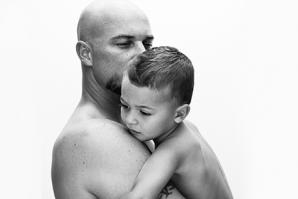Pity friendship: it just doesn’t get enough respect. Romantic love takes center stage in our relationships every time — and in our songs, stories, films and myths — and especially in the Valentine’s Day time of year.
The dreaded words, “Let’s just be friends,” often signal the end of a romance and, for many of us, the end of a meaningful and deep connection.
Too bad. Research shows that, after your mother, friendship may be the most meaningful type of love in your life. Among its many benefits is that it doesn’t deny other relationships or demand exclusiveness, it forgives many trespasses, and it often deepens with age. Moreover, meaningful friendships can be with your lover, your mother, your spouse, your ex-spouse, your kids, your social companions, your work companions, your companions from childhood or schooldays. Friendship offers itself in many guises and times, and it may be your truest type of love.
Loving companionship is often referred to as a close circle of friends — a perfect term, implying, as it does, a protective surround. Research shows that close friendship is just that. It protects your health, your happiness, your very brain.
Alas, friendship may be endangered today, and that’s in spite of the growth of social networks such as Facebook, Twitter and LinkedIn (or possibly because of them). According to a study from the American Sociological Review, 25 percent of Americans have no close confidants, and the average total number of confidants per citizen has dropped from four to two. In fact, more people than not report not having a single person they feel that they can confide in — up threefold from twenty years ago.
How can this be? We humans are naturally social. We have a deep need for companionship, as powerful as hunger or thirst. Indeed, our intense use of social networks proves the need.
Blame it on the times. Modern life is greatly reducing the quantity and quality of social relationships, possibly because of the fewer opportunities to get together –– actually physically together. People no longer live in extended families or even near each other. Instead, we often live scattered across the world from relatives and friends. We move frequently, following careers and opportunities, in contrast to a century ago when people worldwide tended to be born, work and die in the same community. More people are living alone, and loneliness is becoming increasingly common.
This isolation is bad for our brains as well as our bodies. University of Chicago psychologist John Cacioppo, who has been studying social isolation, finds it disconcertingly associated with mental and physical illness. He estimates 60 million Americans are lonely tonight.
Lonely people take more risks, are more impulsive and tend to eat more comfort (read: unhealthy) foods, he finds. Those who feel disconnected from others live with a low-level feeling of threat, among other ills. That type of stress contributes to higher blood pressure — and what’s bad for the heart is bad for the brain.
Cacioppo has discovered that lonely people tend to be more sensitive to cues from others but have a harder time reading them accurately. So even as they crave human contact, lonely people are demanding and withdrawn, awkward socially and easily victimized: they are willing to accept unfair treatment that others will not. In addition to feeling unhappy, lonely people don’t feel safe: they are more likely to perceive others as threatening.
The good effects of companionship are so profound that an active social life may be the next prescription from your doctor, who, in the not-too-distant future, may tell you to “find two more friends, and call me in the morning.”
More than a century’s worth of research shows that having a healthy social life is important to staying mentally and physically healthy. Overall, social support increases survival by some 50 percent, concludes a meta-analysis. Therefore, a long lunch with coworkers, a night out with your same-sex friends or a late-night conversation with a close family member might be just what the doctor ordered.
We may regard these as poor substitutes for romantic relationships. But the benefit of friends, family and even colleagues turns out to be just as good for long-term survival as giving up a fifteen-cigarette-a-day smoking habit –– and more crucial to physical health than exercising or beating obesity.
Friendship may also protect your aging brain. Several studies have connected an active social life with a lower risk of dementia. A 2008 Harvard University study found that older folks with an active social life have a slower rate of memory decline — in fact, less than half the rate of those who were the least socially active.
And apparently our relationships don’t have to be good to boost our health. A 2008 study in Social Science and Medicine found that people with chronic illnesses actually had a lower mortality rate if they had negative — or at least more demanding — relationships. Researchers speculate that those near and dear to sick people might be nagging them about unhealthy habits and urging them to take their medication and that more demands may be seen as a sign of more caring.
For years, many researchers thought that as long as you have one person in your life, you’re okay –– but decades of research show that in fact, social support and survival operate on a continuum: more, it seems, is better. The greater the extent of the relationships, the lower the risks. That might be the incentive you need to get out there and socialize.
Recommended For You

Daddy Issues
Why aren't more men taking paternity leave?
On opening day of the 2014 baseball season, New York Mets second baseman Daniel Murphy was noticeably absent. He wasn’t benched. He didn’t have the flu. He simply took advantage of Major League Baseball’s paternity leave policy, which grants 72 hours off, to attend the birth of his son.
And all hell broke loose.



